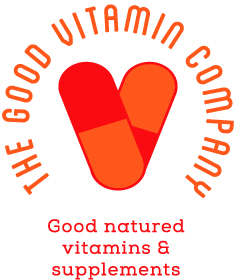CoQ10 – One of the Key Vitamins to a Healthy Heart
Cardiovascular diseases have become more common in recent years, with millions of people diagnosed with different heart conditions every year. In such circumstances, a topic that has been receiving increasing attention is the role of vitamins in ensuring heart health.
In this blog post, we will talk about how CoQ10 – a vitamin-like substance in our body – can play a part in keeping our hearts healthy.
Key Vitamins to a Healthy Heart
Key vitamins to a healthy heart include vitamins D, B, C, and E. Vitamin D helps regulate blood pressure and reduce inflammation. Vitamin B is also important as it reduces inflammation and ensures properly functioning heart vessels.
Vitamin C helps reduce the risk of heart disease by preventing plaque buildup in arteries. Vitamin E is an antioxidant that prevents the oxidation of bad cholesterol, reducing the risk of plaque buildup in the arteries. However, a key vitamin for heart health that is in the spotlight these days is CoQ10.
What is CoQ10?
CoQ10, also known as coenzyme Q10 (ubiquinol), is a naturally occurring enzyme-like substance found in all cells of the human body that convert food into energy. There are two primary functions of CoQ10:
- Helping Cells with Energy Production
- Reducing Damage from Free Radicals
How Does CoQ10 Help Generate Energy In Your Cells?
A deep dive into the field of Mitochondrial Bioenergetics has indicated that CoQ10 is vital in facilitating biochemical processes occurring within mitochondria, the part of our cell responsible for producing energy.
Specifically, it helps transport electrons between enzymes in the electron transport chain, producing a proton gradient to generate ATP, the main energy source used by cells. Without adequate levels of CoQ10, cells may not be able to produce enough ATP to meet their energy needs, leading to cell damage and disease. It is particularly important for cells with high energy demands, such as those in the heart and skeletal muscles.
How Does CoQ10 Help Reduce Free Radical Damage?
Free radicals refer to highly reactive molecules that can attack and damage cell membranes, including the lipids (fats) in the membranes. This process is called lipid peroxidation.
In addition to its role in ATP production, Coenzyme Q10 (Ubiquinol) also serves as an antioxidant within mitochondria. It neutralizes free radicals, protecting cells against oxidative damage caused by lipid peroxidation. This may be particularly important in preventing the development of atherosclerosis (the buildup of fats in and on the artery walls), partly driven by oxidative stress and vascular inflammation.
CoQ10 can also regenerate other antioxidants in the body, such as vitamin E, which is also important for protecting cell membranes from damage. Vitamin E oxidizes itself while neutralizing free radicals. CoQ10 can help reactivate the oxidized vitamin E, allowing it to continue its antioxidant function.
Importance of CoQ10 for Heart Health
Its role is being studied for the prevention and improvement of symptoms of high blood pressure, congestive heart failure, and other cardiovascular problems.
Studies have shown that Coenzyme Q10 (Ubiquinol) may particularly benefit those with a history of heart attack or heart disease. Research indicates it may also facilitate bypass recovery when combined with other nutrients.
People with heart disease often have to take statins to keep their cholesterol levels low. However, long-term use of statins can deplete the levels of CoQ10 and other essential nutrients for heart health.
This depletion of CoQ10 can lead to mitochondrial dysfunction and contribute to muscle pain and weakness. Supplementing with CoQ10 can help regain CoQ10 levels in the body, potentially decreasing the risk of statin-induced myopathy – a type of muscle disorder characterised by muscle pain, weakness, cramping, or tenderness.
Where Is CoQ10 Found Naturally?
Although our body naturally produces CoQ10, certain factors like ageing, stress, and medications can reduce its production levels.
CoQ10 (Coenzyme Q10) is found naturally in many foods, particularly in organ meats like the liver, heart, and kidney. It is also found in some fish, like salmon and tuna, as well as in whole grains, nuts, and vegetable oils.
While CoQ10 is found naturally in many foods, the levels of CoQ10 in food sources can vary widely, and it can be difficult to obtain optimal levels of CoQ10 through diet alone. This is especially true for those on a strict vegan or vegetarian diet.
Why is CoQ10 Supplement Needed?
Lack of CoQ10 can lead to various health problems due to its important role in producing energy in cells, protecting cells from oxidative damage, and supporting overall health.
CoQ10 deficiency has been associated with low levels of heart-protective "good" cholesterol, increasing the risk of cardiovascular disease, including heart failure, high blood pressure, and atherosclerosis. Plus, it may lead to muscle weakness and fatigue, as the muscles require adequate amounts of Coenzyme Q10 (Ubiquinol) to produce energy.
If you suspect a CoQ10 deficiency, it is important to consult with a healthcare provider to determine the underlying cause and discuss appropriate treatment options, which may include CoQ10 supplements.
The Best Coq10 in the World
CoQ10 supplement by The Good Vitamin Company provides 100mg of high-quality CoQ10 (ubiquinone) that not only supports optimal energy levels but also keeps your heart healthy. This dietary supplement also contains 6.7 mg of Vitamin E, which makes it a combo of key vitamins for heart health.
Moreover, it is produced using a colloidal droplet system, which allows your body to absorb CoQ10 better. Colloidal droplet delivery is a drug delivery system that utilizes nanoparticles or colloids to encapsulate and transport drugs or other therapeutic agents to target tissues or cells.
In this system, the drug is encapsulated within a droplet of a biocompatible carrier material, like a lipid or polymer, to create a colloidal particle. The colloids can then be administered to the body and are designed to release the drug in a controlled and targeted manner.
There are 30 soft gels in a bottle; you can take one soft gel - preferably after a meal or as your doctor prescribes. Don't forget to consult a healthcare professional before taking any supplements, especially if you have an existing condition, take medicines, or are pregnant or breastfeeding. Plus, it's important to remember that these supplements should not be consumed as alternatives to food items.

